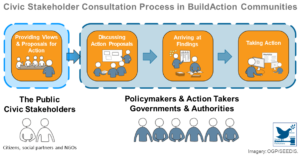 Governments commonly use deliberation as a part of the policy-making process, but it is usually conducted internally and behind closed doors, thereby excluding the public. However, efforts to involve the public in the deliberative stage are quite rare and, for the most part, governments do not have a reliable methodology for this. While possibly being supported by public consultation, this typically involves a committee of elected officials and/or a team of policy experts. If governments are to involve the public, difficult questions are raised, such as the rules and principles to guide the deliberation and discussion, the selection and number of participants, decision-making, and conflict resolution. This project aims to provide guidance to engage the public in the process.
Governments commonly use deliberation as a part of the policy-making process, but it is usually conducted internally and behind closed doors, thereby excluding the public. However, efforts to involve the public in the deliberative stage are quite rare and, for the most part, governments do not have a reliable methodology for this. While possibly being supported by public consultation, this typically involves a committee of elected officials and/or a team of policy experts. If governments are to involve the public, difficult questions are raised, such as the rules and principles to guide the deliberation and discussion, the selection and number of participants, decision-making, and conflict resolution. This project aims to provide guidance to engage the public in the process.
OGP Practice Group. "Deliberation – Getting Policy-Making Out From Behind Closed Doors". Open Government Partnership. Accessed July 26, 2024. https://www.opengovpartnership.org/...
Posted on 26/07/24
Recent Abstracts
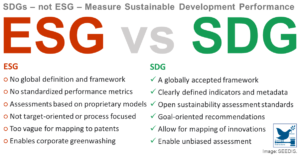
SDGs vs ESGs: What is the Better Measure of Sustainability?
SDGs are the most commonly used framework for the sustainability reporting of the top patent holders. The UN Sustainable Development Goals (SDGs) are a globally agreed and accepted framework of practices with clearly defined indicators and goal-oriented recommendations that enable criteria-unbiased sustainability asse ...
Posted on 19/12/24
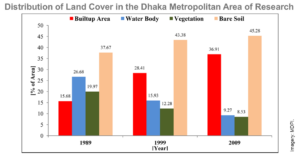
Simulating Land Cover Changes and Their Impacts on Land Surface Temperature in Dhaka, Bangladesh
Despite research that has been conducted elsewhere, little is known, to-date, about land cover dynamics and their impacts on land surface temperature (LST) in fast growing mega cities of developing countries. Landsat satellite images of 1989, 1999, and 2009 of Dhaka Metropolitan (DMP) area were used for analysis. The s ...
Posted on 16/12/24
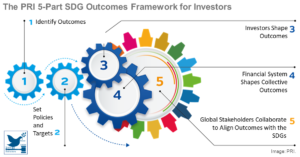
Comparative Study of Key Supply Chain Management Elements in Sustainability Reports
For the evaluation of enterprise value and investment decision-making, firms must demonstrate their commitment to the Sustainable Development Goals (SDGs). For this, several factors are considered, including supply chain management (SCM), human rights, climate change, safety, and environmental risks. This study analy ...
Posted on 03/12/24
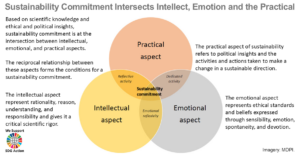
A Didactic Model of Sustainability Commitment
For adoption of 2030 Agenda and the Sustainable Development Goals, education must be reoriented and implemented towards commitment to sustainable development. The environmental and sustainability education (ESE) model suggests that a sound commitment is found at the intersection of the intellectual, emotional, and prac ...
Posted on 29/11/24
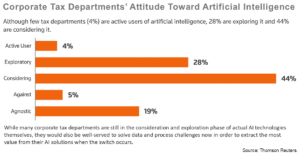
Improving Individual Business Tax Collection In Ho Chi Minh City Via Technological Solutions
This study examines the potential of technological solutions to enhance the efficiency and effectiveness of individual business tax collection in Ho Chi Minh City, focusing on streamlining processes, improving transparency, and reducing tax evasion. The research is based on theories of digital transformation and tax co ...
Posted on 28/11/24

How Vietnam can stay competitive in a changing global trade environment
Vietnam has made tremendous economic progress in the 21st century. Real domestic output per capita has more than tripled since 2000, a rate of growth surpassed only by China in the East Asia and Pacific region. Labor productivity growth per worker was also fastest in the region, albeit from a relatively low starting po ...
Posted on 28/11/24
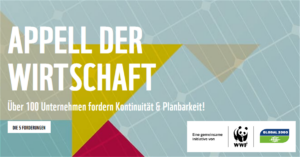
Appell der Wirtschaft an die künftige Bundesregierung
Die zunehmenden Schäden und Kosten der Erderhitzung und der großflächigen Zerstörung von Ökosystemen werden durch europaweite Krisen verstärkt. Daraus ergeben sich massive ökonomische, soziale und ökologische Folgen. Rasches und kontinuierliches Handeln ist eine Voraussetzung für den künftigen Erfolg des Wirtschaftss ...
Posted on 27/11/24
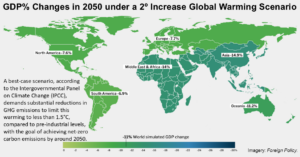
Major Economic and Financial Risks Posed by Climate Change
Failure to transition will generate significant and widespread economic and financial risks. An economic forecast from Swiss Re, one of the world's largest reinsurers, projects a loss in global gross domestic product (GDP) of between 4.2 and 18.1 percentage points by mid-century, depending on different warming scenario ...
Posted on 27/11/24
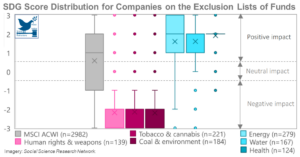
ESG to SDG: Do Sustainable Investing Ratings Align with the Sustainability Preferences of Investors, Regulators, and Scientists?
ESG and SDG cannot be used interchangeably to identify the sustainability of companies and their contribution to social development and the planet, although they are complementary. Where sustainable investors aim to invest in companies that contribute to sustainable development, there is disagreement on how best to me ...
Posted on 26/11/24
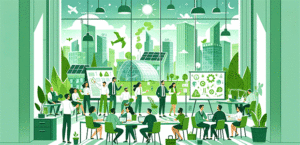
COP29 có thể đảm bảo các Doanh nghiệp vừa và nhỏ phát triển mạnh trong quá trình chuyển đổi Net-Zero
Quá trình chuyển đổi sang tương lai công bằng, kiên cường và net zero là không thể nếu không có các doanh nghiệp vừa và nhỏ, được gọi là SMEs. Họ là động lực của nền kinh tế ngày nay và là xương sống của chuỗi cung ứng toàn cầu, chiếm khoảng 90% tổng số doanh nghiệp và khoảng 70% việc làm trên toàn thế giới. Các doanh ...
Posted on 23/11/24
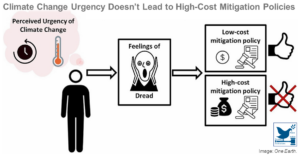
Fighting Climate Change: Cheaper than ‘Business as Usual’ and Better for the Economy
The oft-repeated and rarely challenged view that energy solutions to address climate change are expensive and uneconomical has long thwarted public support for even the most sensible measures – despite the evidence that the damage caused by climate change is far more costly. Those who oppose climate action point to th ...
Posted on 20/11/24
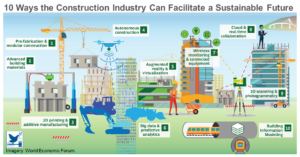
The Critical Role of the Construction Industry in Achieving the Sustainable Development Goals (SDGs): Delivering Projects for the Common Good
In 2015, the United Nations adopted the 2030 agenda for Sustainable Development, which set out 17 Sustainable Development Goals (SDGs), 169 targets and 231 unique indicators as a significant initiative towards global socioeconomic sustainability. Governments commonly use construction as the principal means for the pol ...
Posted on 18/11/24
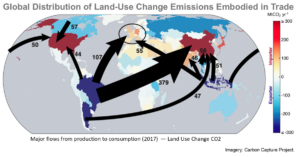
Global Carbon Budget 2024
The latest Global Carbon Budget 2024 report, published in the journal Earth System Science Data, shows that global CO2 emissions from fossil fuels will reach a record level in 2024. Caused by fossil fuels from combustion engines of all kinds and agriculture, the global carbon budget increased by 0.8 percent compared t ...
Posted on 13/11/24
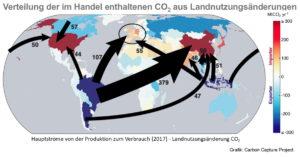
Das Global Carbon Budget 2024
Der jüngste Bericht „Global Carbon Budget 2024“, der in dem Fachjournal Earth System Science Data erschienen ist, zeigt, dass die weltweiten CO₂-Emissionen aus fossilen Brennstoffen im 2024 ein Rekordniveau erreichen werden. Verursacht durch fossile Brennstoffe aus Verbrennungsmotoren aller Art und der Landwirtschaft, ...
Posted on 13/11/24
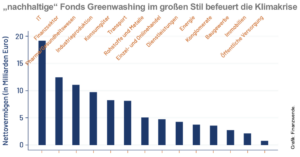
Greenwashing und gerichtliches Strafrecht
Greenwashing-Verurteilungen können zu hohen Geldstrafen für Banken führen. Unter den üblichen Verdächtigen wird die Deutsche Bank-Tochter DWS des Greenwashings im Zusammenhang mit „grünen“ Investitionen beschuldigt, während den meisten Banken vorgeworfen werden kann, dass sie keine angemessene Due-Diligence-Prüfung du ...
Posted on 12/11/24

